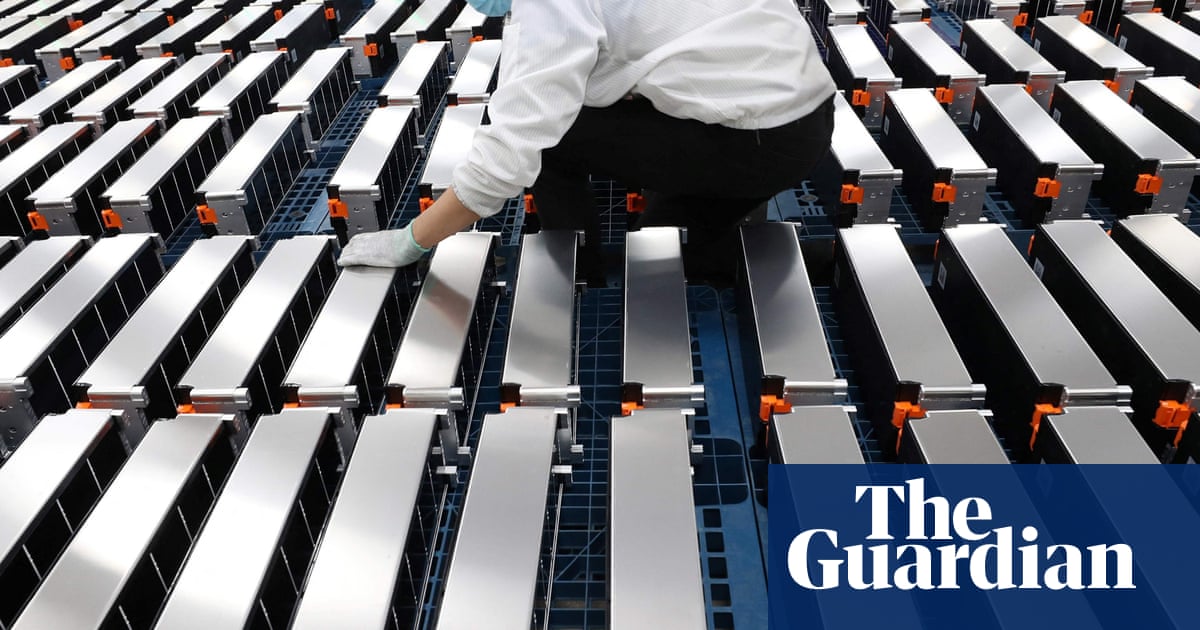A cobalt trading company has said it will raise £174m in rare a stock market float in London, in a bet on demand for car batteries that defies investor nerves around the growth in electric cars.
Cobalt Holdings said it will raise $230m (£174m) in order to buy up a supply of the metal, a crucial element in electric car batteries, from the FTSE 100 mining company Glencore. The miner will invest $24m, taking a stake of about 10%, according to a statement to theLondon Stock Exchangeon Monday.
Demand for electric cars is still growing rapidly around the world, but thatgrowth has been slower than previously expected, leading to a series of global carmakers to slow down their transition away from petrol and diesel. That has made it much tougher for companies to raise money for ventures related to electric vehicles, and has caused cobalt prices to drop.
However, Cobalt Holdings argued thatoversupply of the metal will be short-lived, giving it an opportunity to buy cheaply.
The company was founded by Jake Greenberg, who was one of the founders of Yellow Cake, a similar London-listed vehicle that buys and holds uranium for nuclear fuel. Yellow Cake’s valuation, at about £1bn, is more than double what it was worth in July 2018, when the shares floated.
Most electric car batteries rely on lithium ions to store energy, but nickel, manganese and cobalt (NMC) play an important role instabilising the NMC batteries during recharging. Cobalt is the most expensive of those metals, meaning that companies are trying to find cheaper alternatives. Many makers of cheaper cars have opted for lithium iron phosphate (LFP) batteries made from cheaper elements, yet NMC remains the go-to chemistry for longer-range vehicles.
“We believe NOW is the right time to build a strategic stockpile of cobalt,” said Greenberg. “The long-term price of cobalt has historically been well above the prevailing spot price.
“The Democratic Republic of Congo has begun to impose export restrictions, reducing metal supply, while demand for cobalt more than doubled between 2015 and 2024, and is expected to rise by more than 54% between 2024 and 2031, primarily on the back of accelerating EV battery demand growth.”
Despite carmakers’ slower investments in electric cars, demand for batteries is expected to rise in line with bans on sales of petrol and diesel cars, particularly in the UK and EU. Theworld’s biggest battery maker, China’s CATL, said on Monday that it would raise $4bn in a secondary share offering in Hong Kong, in what would be the largest float of 2025 so far.
The Cobalt Holdings listing would be the biggest in two years in London, amid a drought. During 2024, 88 companies delisted from theLondon Stock Exchangeor moved their primary listing from its main market. Only 18 listed.
The Democratic Republic of Congo produces about three-quarters of global cobalt supply, although its record has been marred by persistent allegations of child labour and artisanal mining in dangerous conditions, according toreports by the human rights group Amnesty Internationaland others.
